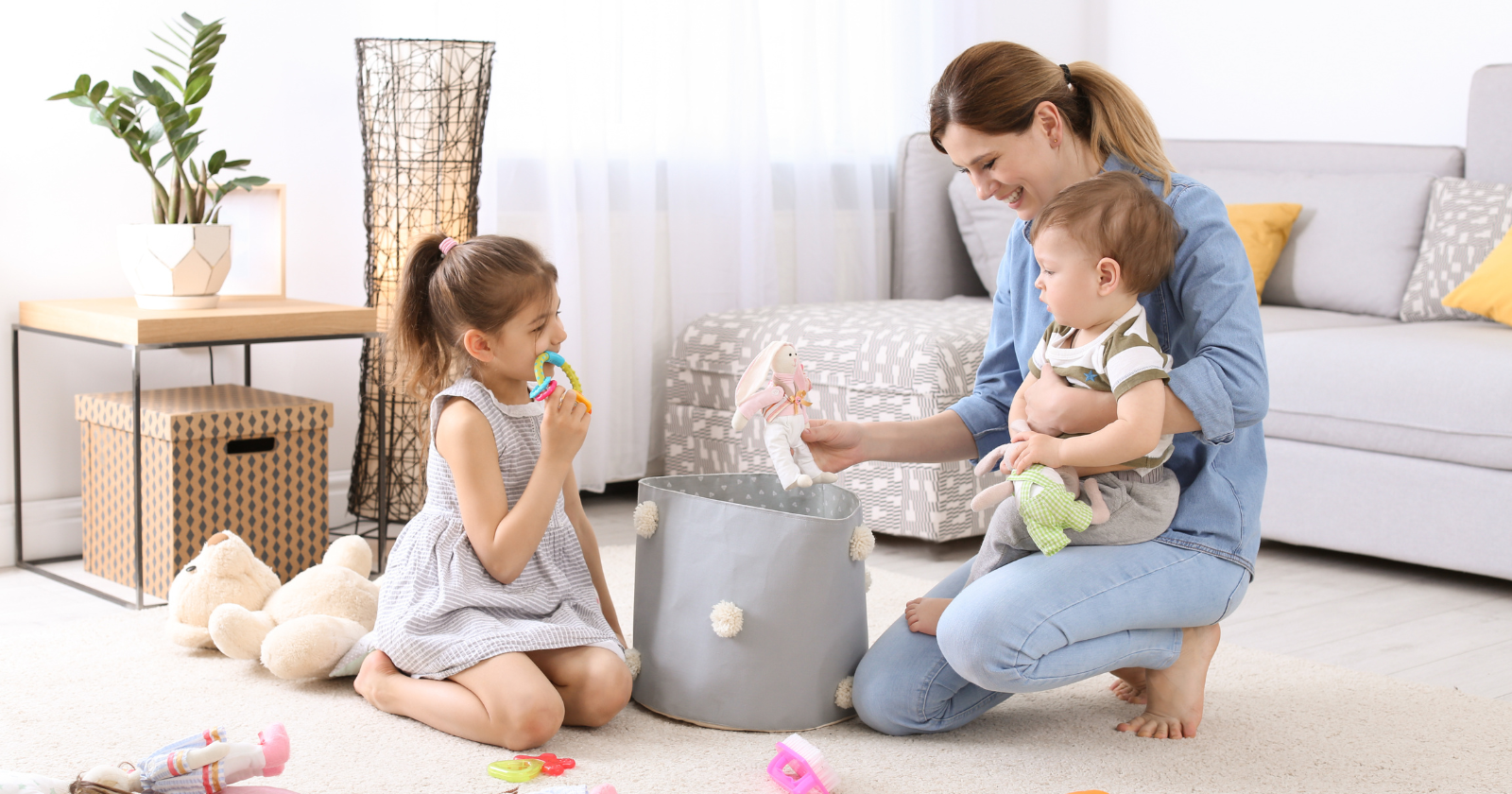I thought I was prepared—I had spreadsheets, a label maker, and a can-do attitude—then I had kids and all my tidy plans met real life.
Two kids later, I’ve learned that parenting isn’t just harder than it looks; it’s a full-contact sport with no off-season.
If I could hop in a time machine and whisper in my own ear before the first swaddle, I’d do these seven things differently.
I’m sharing what I wish I’d known, not as a lecture, but as a hand on your shoulder.
Take what helps and leave the rest on the counter, next to the half-drunk coffee:
1) Treat sleep like the project that holds all other projects
I used to treat sleep as an outcome: baby sleeps, I exhale.
If I could redo those early months, I’d treat sleep like an actual project with phases, tools, and a realistic roadmap.
I’d build simple guardrails from day one: a predictable wind-down, the same sleep space for most naps, and a flexible bedtime window.
Nothing fancy—just boring consistency.
When nights get rough (and they will), boring consistency is what you can still do on autopilot.
I’d also set my own sleep minimums.
Related Stories from The Artful Parent
Not “eight hours” as some mythical ideal, but a rolling baseline—say, 6.5 hours total in any 24-hour window—because I’m nicer and smarter with that number.
On nights when we missed it, I’d cancel what could be canceled and get it back during the day.
This would have prevented so many “everything feels impossible” spirals.
When sleep quality rises, everything else becomes solvable.
2) Build a village before you need the village
I thought “help” meant emergency coverage.
I didn’t realize help is also the text you send at 4 p.m. when everyone is crying and the chicken is still frozen.
- Psychology says if your parents said these 7 phrases growing up, you probably struggle with self-worth as an adult - Global English Editing
- People who drive with one hand on the wheel typically display these 8 laid-back personality traits - Global English Editing
- I asked 50 people in their 60s what they miss most about being young—and these 8 answers came up again and again - Global English Editing
If I could rewind, I’d build our village on purpose.
I’d make a sitter roster before the baby shower; I’d introduce myself to the neighbor with the older kids and swap Saturday morning playdates.
Trade is the magic: You get two hours on Sunday; I get two hours on Wednesday.
No guilt, no keeping score—just recognizing that small pockets of time are oxygen.
People want to help; they just don’t want to guess.
3) Design weekday rhythms like rails, not cages
Early on, I tried to schedule every minute.
Then the dog threw up, the preschool emailed about early pickup, and the plan collapsed.
What works now is gentler: rails that guide our day without locking it down.
When we miss an anchor, we move on.
That’s the secret: The rhythm catches us—like stepping back onto a moving walkway—without the self-blame fog.
Kids benefit when we act more like gardeners than carpenters—tending conditions rather than forcing outcomes.
I wish I had gardened earlier.
4) Simplify the house sooner (toy rotation, zones, capsule wardrobes)

I used to think organization lived in plastic bins.
The truth is, it lives in fewer things and clearer zones.
Greta thrives when her art supplies are lined up and labeled (“shop hours” are real in our living room); Emil plays longer when he knows where cars “sleep.”
Less clutter equals longer play equals two hands to drink hot coffee.
For clothes, capsule all the way.
Ten tops, six bottoms, two sweaters, one coat per kid per season.
Everything mixes.
Laundry folds faster because there’s less of it.
I keep a “too small” bag inside the closet and drop items in the second they stop fitting.
No sentimental mountaintops in the drawers.
The fewer micro-decisions in a day, the more patient I am when the dishwasher helper “helps.”
5) Use screens as a tool, not a mystery
Early on, I treated screens like a forbidden fruit—and then I’d hand over my phone in a panic when dinner burned.
If I could restart, I’d set the frame right away: Screens are a tool with rules.
We use them on purpose.
As Brené Brown has said, “Clear is kind.”
It’s true here—the clearer we are about when, what, and how long, the kinder the transitions feel.
6) Share the mental load like a real partnership, not a series of favors
I used to carry the invisible checklist in my head, and I also used to resent it.
Lukas is an equal partner, but he can’t read my mind (rude).
The mental load shrinks when it’s written down and divided on purpose.
The marriage gets lighter too.
I stop saying “I’ll just do it,” and he stops feeling like a backup singer.
We both become the band.
7) Budget for support and outsource sooner (time beats stuff)
I regret how much I spent on cute gear I barely used, and how long I waited to spend on help I desperately needed.
If I could start again, I’d set aside a monthly “stress slush fund.”
Not huge—just enough to throw at the current bottleneck.
I’d also pre-pay for the high-leverage things: An extra car seat for the sitter’s car, a backup set of labeled water bottles, spare sheets for every bed (including ours).
Nothing is more expensive than the emergency you could have softened for $25 and a label maker.
“Good enough” beats “perfect” every day.
Children don’t need perfect parents; they need “good-enough” ones who meet needs reliably and leave room for growth.
Outsourcing helps me be that parent by keeping my bandwidth steady, not saintly.
Closing thoughts
If I had known how intense and relentless parenting can feel, I would have lowered the bar on perfection and raised the bar on systems.
I would have made fewer fancy plans and more simple defaults.
I would have asked for help sooner, put sleep at the center, and built a home that runs even when the day runs late.
Most of all, I would have been kinder to the version of me who was learning all of this in real time.
She didn’t need another tip; she needed permission to be a “good-enough” mom in a complicated week.
If that’s you today, consider this your permission slip.
Parenting is hard, but it’s also buildable.
You need one small system that works on your hardest day, then do it again next week.
Bit by bit, you’ll look around and realize your home runs on rhythms you can trust—even when real life does what real life does.



